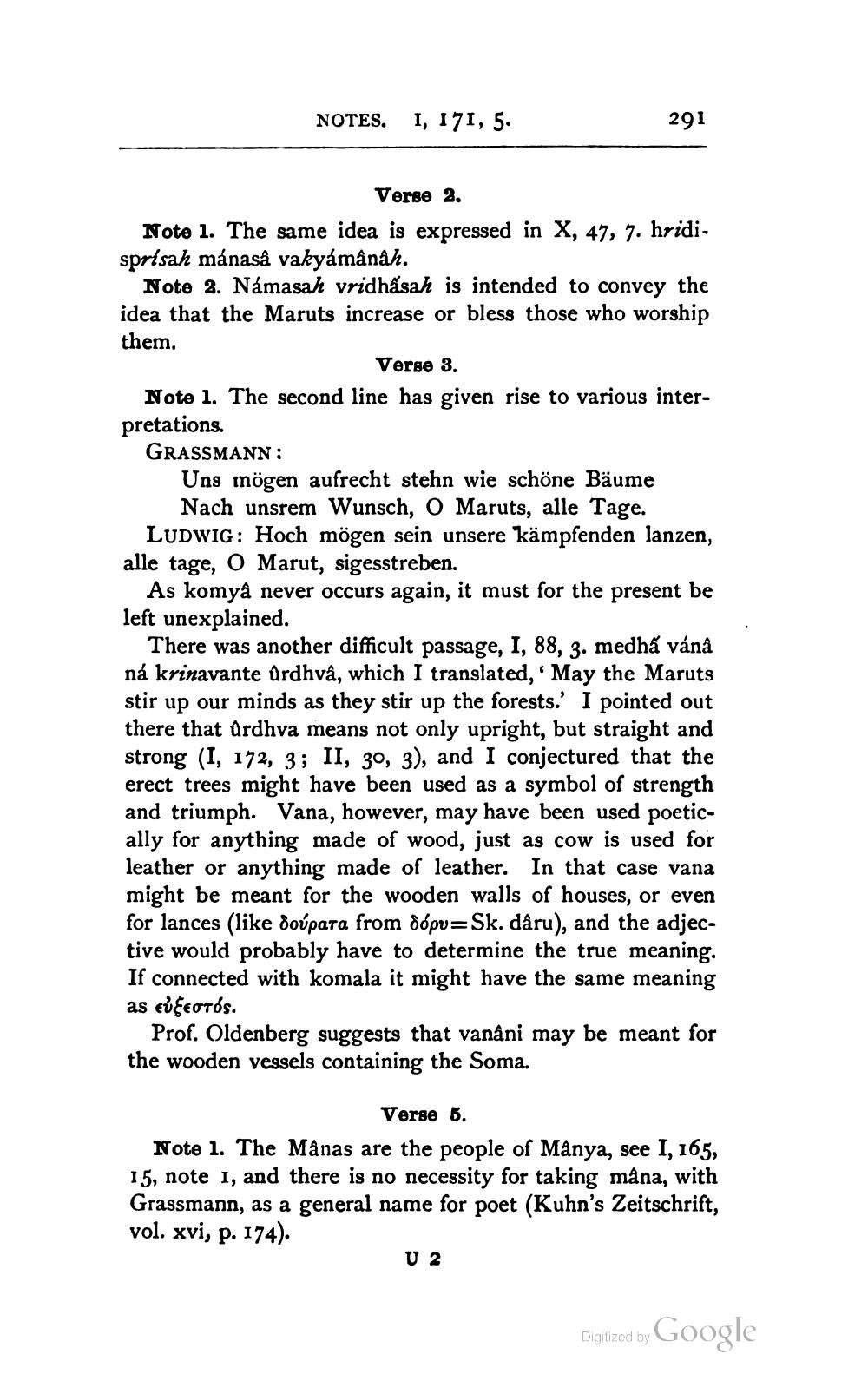________________
NOTES. I, 171, 5.
291
Verse 2. Note 1. The same idea is expressed in X, 47, 7. hridi. sprésah mánaså vakyamânah.
Note 2. Námasah vridhasah is intended to convey the idea that the Maruts increase or bless those who worship them.
Verse 3. Note 1. The second line has given rise to various interpretations. GRASSMANN:
Uns mögen aufrecht stehn wie schöne Bäume
Nach unsrem Wunsch, O Maruts, alle Tage. LUDWIG: Hoch mögen sein unsere kämpfenden lanzen, alle tage, O Marut, sigesstreben.
As komyâ never occurs again, it must for the present be left unexplained.
There was another difficult passage, I, 88, 3. medhá vánå ná krinavante Urdhvâ, which I translated,' May the Maruts stir up our minds as they stir up the forests. I pointed out there that Ordhva means not only upright, but straight and strong (I, 172, 3; II, 30, 3), and I conjectured that the erect trees might have been used as a symbol of strength and triumph. Vana, however, may have been used poetically for anything made of wood, just as cow is used for leather or anything made of leather. In that case vana might be meant for the wooden walls of houses, or even for lances (like doúpara from dópu=Sk. daru), and the adjective would probably have to determine the true meaning. If connected with komala it might have the same meaning as eu feoTÓS.
Prof. Oldenberg suggests that vanâni may be meant for the wooden vessels containing the Soma.
Verse 6. Note 1. The Manas are the people of Manya, see I, 165, 15, note 1, and there is no necessity for taking mâna, with Grassmann, as a general name for poet (Kuhn's Zeitschrift, vol. xvi, p. 174).
U 2
Digitized by
Digilzed by Google




